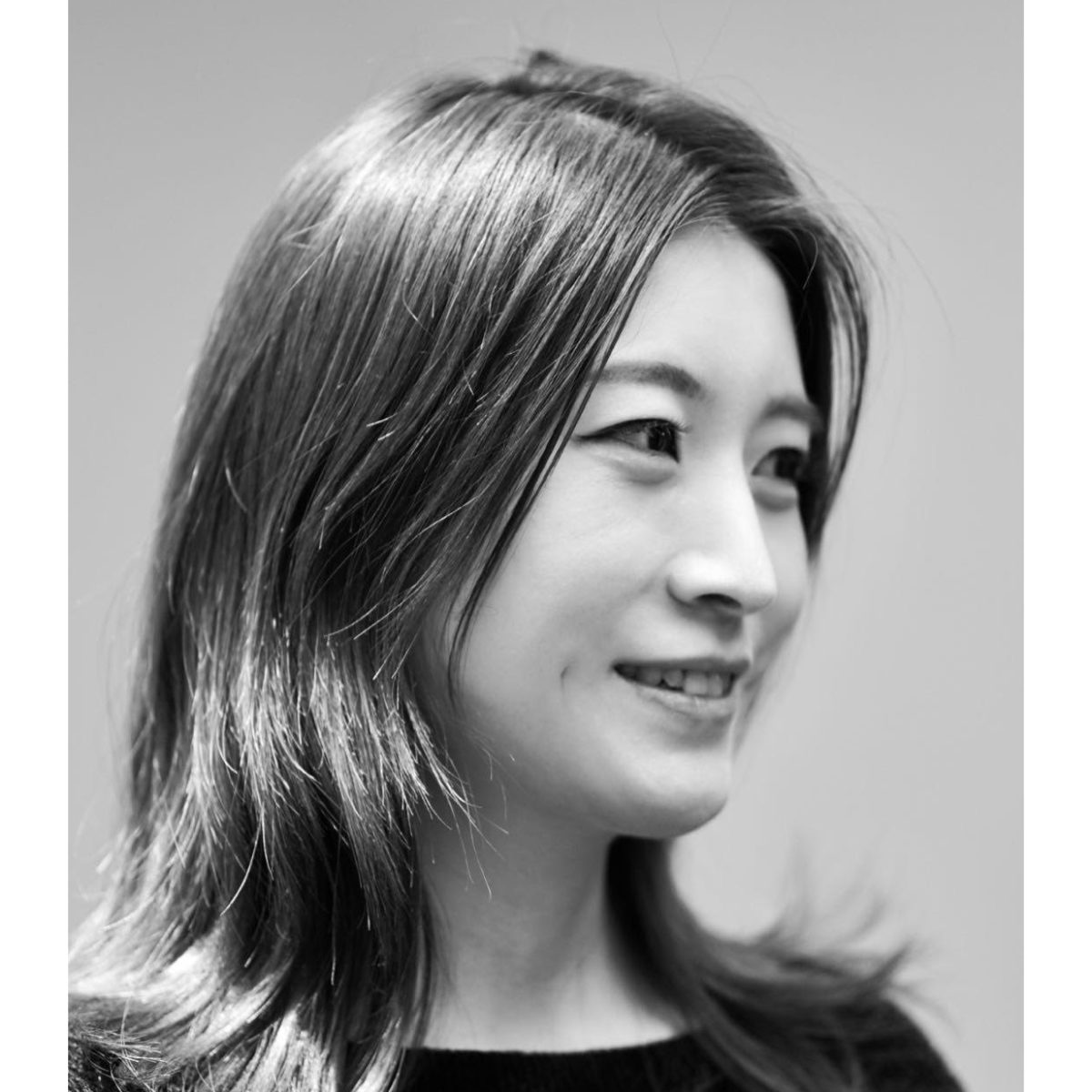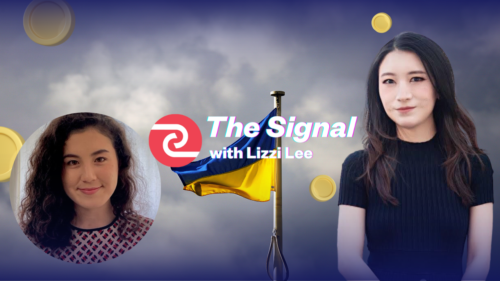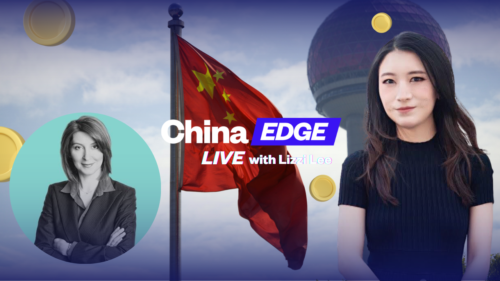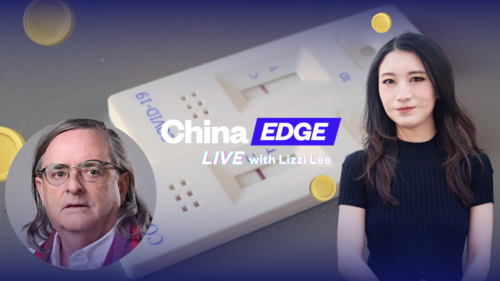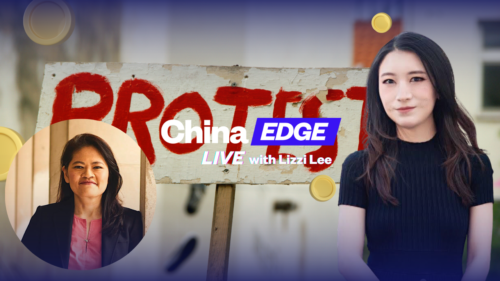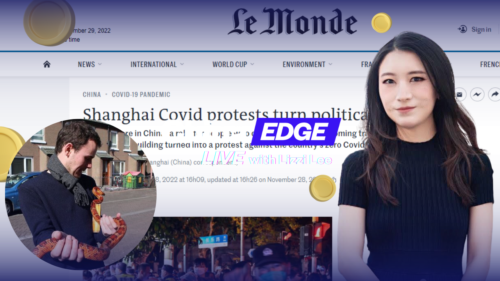Who will call the shots in China? | Live with Lizzi Lee
Cheng Li, director of the John Thornton China Center and a senior fellow in the foreign policy program at Brookings, breaks down the leadership lineup at the 20th Party Congress.
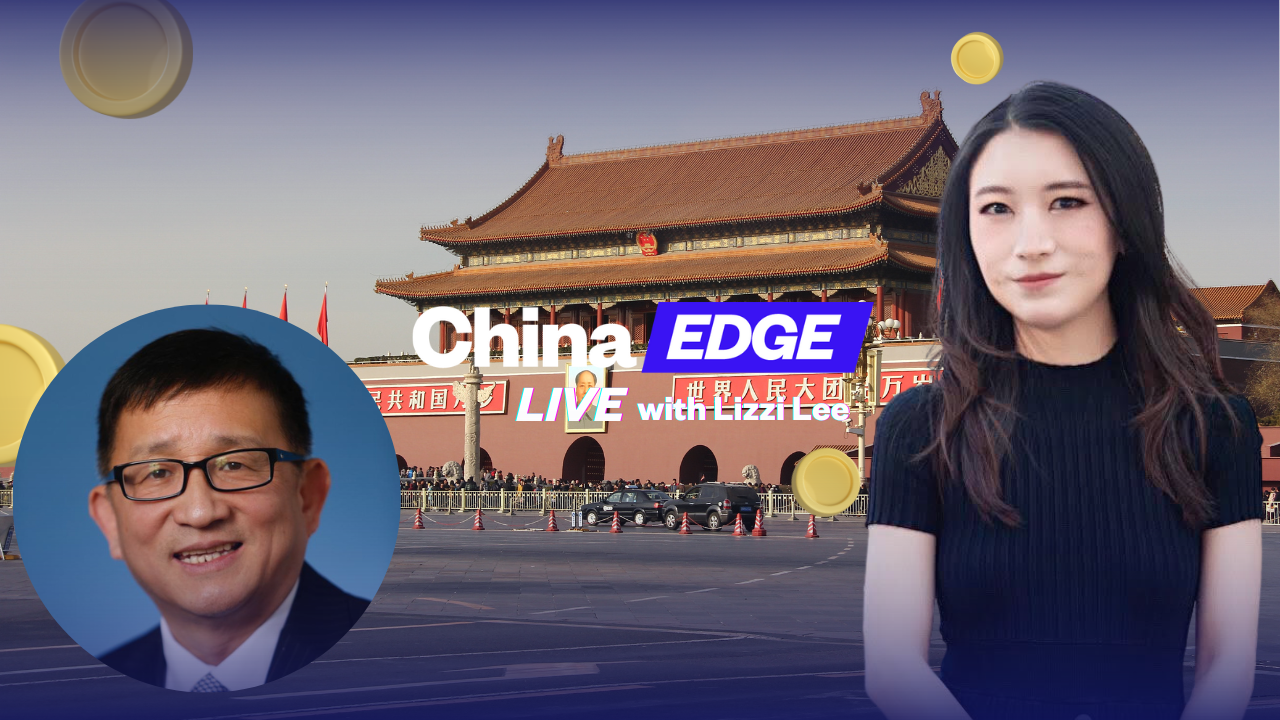
In this episode of Live with Lizzi Lee:
Cheng Li, director of the John Thornton China Center and a senior fellow in the foreign policy program at Brookings, argues that previous norms only provide some clues about the composition of China’s top leadership — the critical personnel decisions will be primarily made by the Chinese president Xí Jìnpíng 习近平 himself.
Below is a transcript of the video:
Lizzi Lee: Joining me today is Dr. Cheng Li, director of the John Thornton China Center and a senior fellow in the foreign policy program at Brookings. Thank you so much, Dr. Li, for joining me today.
Cheng Li: Thank you for having me.
Lizzi: So, Dr. Li, we are here to talk about the 20th Party Congress. We haven’t heard anything solid on personnel reshuffling this time around. What is your read on the makeup of Xi Jinping’s next Politburo Standing Committee, especially the next premier?
Cheng Li: Well, you’re right. Thus far, there have been no leaks of important information surrounding this forthcoming leadership reshuffle. At the previous Party congresses in the post-Dèng [Xiǎopíng 邓小平] era, the norms for ensuring the representation of competing factions and then enforcing the mandatory retirement age provided some clues about the composition of the top leadership.
But the selection of the Politburo Standing Committee this time will be decided primarily by Xi Jinping. Previous norms and rules no longer apply. Therefore, understanding Xi Jinping’s objectives and concerns are critical when analyzing China’s leadership.
Now, if you don’t mind, let me elaborate on these things. Now, Xi Jinping consolidates power with remarkable pace and skill during his first two terms, and he now possesses the greatest authority and influence in the party establishment since Deng, if not since Máo [Zédōng 毛泽东].
Yet Xi Jinping still confronts what I call three difficulties in deciding his personnel appointment in the highest echelons of power.
This is primarily a result of his call for leadership unity at a time when China faces what Xi Jinping calls “unprecedented challenges” on both the domestic policy and the foreign relation fronts. And it’s partially because of his long-term consideration of the inevitable political succession in Zhongnanhai, the Chinese Communist Party’s headquarters.
Now, let me elaborate on these three difficulties.
Number one, Xi Jinping is to pave the way to vacate at least three, in my view, most likely four seats on the current Politburo Standing Committee for newcomers, especially for the so-called 6-G leaders, those born in the 1960s.
The oldest member, as you know, Lì Zhànshū 栗战书, who was born in the 1950s, will surely step down, although he may become the candidate for vice president of the PRC, succeeding Wáng Qíshān 王岐山.
The age span of the other five members is only three years. There are no objective criteria for determining who will stay and who will leave. The concern for Xi Jinping is not just the potential resentment from the leaders who will step down, but also a sense of unfairness, among many others. That’s number one.
Number two, there are no signs that Xi Jinping will choose his successor at the Party Congress. Unsurprisingly, Xi does not want to be a lame duck during his third term.
The reason for not designating a successor could be a benign one. A possible successor needs to be tested with the various leadership, with responsibility, and to be accepted by the political establishment and also the general public.
Now, this explains why Xi Jinping needs to promote more than two younger leaders, as I said earlier, to the Politburo Standing Committee, or as many as four to five, if he expands the Politburo Standing Committee from seven to nine seats.
So, for candidates, this includes some of the 5-G leaders that still have a chance as newcomers, like Lǐ Xī 李希, Cài Qí 蔡奇, Huáng Kūnmíng 黄坤明, and Chén Xī 陈希.
Of course, more important is the 6-G generation. I foresee that there will be three of them that will make it, including Dīng Xuēxiáng 丁薛祥, Hú Chūnhuá 胡春华, Chén Mǐn’ěr 陈敏尔, Lǐ Qiáng 李强, and Mǎ Xìngruì 马兴瑞.
Now Ma Xingrui, if he makes it, it will be two steps up, moving to the Standing Committee from the central committee member. That happened 15 years ago for Xi Jinping and Lǐ Kèqiáng 李克强.
Now, if what Xi promotes only two 6-G members or even only one member, I think this will not happen, because the Chinese public and all media will immediately speculate that one leader will succeed Xi Jinping in five years, or if there are two people, the other one will become premier in five years.
Do you think Xi Jinping wants that to happen? I don’t think so, because he needs to not become the lame duck, as I said earlier.
Now the last challenge… And, let me add one more thing. Not all members of the standing committee are equal. The first four positions hold a higher status than the last three positions.
Xi Jinping will likely have 5-G leaders, those born in 1950s serving in the first of four positions, which may suggest that he’s hesitant to choose a 6g member as a premier, because a premier usually ranks on as the number three on the politburo standing committee.
Now this goes back to my last point. You asked about the premier. Who will become the premier? No, I don’t know the answer. Based on Chinese norms. All previous premiums have first served as vice premiers.
Of course, except for the first premier Zhōu Ēnlái 周恩来, only because there was no vice premier before him. Now, if norms apply, they are only four candidates for the premiership.
They are Hán Zhèng 韩正, current executive vice premier, Hú Chūnhuá 胡春华, current vice premier, Liú Hè 刘鹤, current vice premier, and Wāng Yáng 汪洋, previously vice premier.
Now each of them has strengths and disadvantages. Because of time, I do not want to go into detail. I have a paper published by Brookings in which I explain their strengths and disadvantages.
The premier who is ultimately chosen, may signal Xi Jinping’s primary needs and his political and policy considerations. Han Zheng for policy continuity, Hu Chunhua for leadership unity (because Hu Chunhua is not Xi Jinping’s protege, but as “little Hu” is a protegé of Hu Jintao).
Liu He for international popularity — he’s very popular in the international community, and Wang Yang, for drastic policy changes because Wang Yang has been seen as a liberal, as some media reports, which is largely right, and also, he pushed for political reform 10 years ago and even competed with Bó Xīlái 薄熙来 and also push for greater market development.
I think if Xi Jinping chooses him, it would mean drastic policy changes. I do not see that.
Personnel is policy. And Xi Jinping needs to balance competing policy trajectories. And political consideration actually is a challenge.
Now let me conclude. The leadership announcement that lies ahead will show people in China and the world how Xi Jinping intends to overcome these three difficulties.
Indeed, how this reshuffle plays out will allow for a much better assessment of Xi Jinping’s ability to address the issues of leadership unity, sociopolitical stability, economic development and foreign policy in the coming years.
Lizzi: Fascinating. So, I wanted to come back to Xi Jinping himself a little bit. How much domestic support does Xi Jinping have? If we look at Chinese social media, it’s scrubbed clean of any criticism of Chinese leaders. No surprise here. The Chinese intelligentsia and business community seem disappointed or even disillusioned by many of Xi Jinping’s policies. And just this morning, as you know, someone unfurled a banner from a highway overpass calling for Xi Jinping to be deposed. So, we seem to see those signals. But how representative are these views?
Cheng Li: Well, you singled out two groups. I agree with you. These two groups are most critical of Xi Jinping. Of course, the corrupt officials and their families are more critical.
But of course, not just corrupt officials, but even officials — if you ask local leaders, if we ask them who do you like more, Mao or Deng Xiaoping, I will say most political leaders would say they like Deng Xiaoping. They grew up at a time when Deng Xiaoping started the reforms etc.
So, if that’s the case… Of course, Xi Jinping positions himself between and maybe even a little bit leaning towards Mao, etc. So that explains, even some political leaders, not corrupted officials, just local leaders, they may have some reservations.
And, why can you extend term limits and the age requirements, but all other local leaders must abide by those rules? But the liberal intellectuals are particularly critical. And because of the political control, the “Eight Nos” which was put into place roughly nine to 10 years ago after Xi Jinping came into power, the absence of discussion about universal values or democracy, and etc.
So that alienates liberal intellectuals, I think it would last for a long time, perhaps forever. Although some of the liberal intellectuals changed their mind because they were also really disappointed by the United States over the anti-China rhetoric and such.
They think of probably Xi Jinping was not that wrong to want people to prepare for some of the unprecedented circumstances and his stance on Taiwan. Because again, for some liberals only, but still a lot of the other liberals have their reservations.
Now, of course, entrepreneurs, particular the super rich (are not satisfied with Xi Jinping) because of the crackdowns, because of the common prosperity campaigns which force them to donate their money, the so-called third redistribution, and etc. And so, they have some concerns. They have some resentment. They have some criticism.
These are the two special groups. But Xi Jinping is popular among the general public, largely because of the four things that I just shared with Tom Friedman in our fireside chat discussion. I don’t know whether you saw that or not.
Number one is anti-corruption. Remember 10 years ago, Bo Xilai, Lìng Jìhuà 令计划, Zhōu Yǒngkāng 周永康… In a way Xi Jinping saved the Chinese Communist Party.
If we did not do this kind of strong anti-corruption campaign, the Communist Party would have been in big trouble.
Number two, poverty elimination. Xi Jinping was not the first leader to start that, but he is the leader who carried that out and completed what he called “precision poverty elimination”.
Now this is not just lip service. He visited these areas, poverty-stricken areas many, many times. And, the budget, the funding he gave (was the largest in 40 years).
So, of course, these poor people like him. The current common prosperity campaign also allows these people to gradually move to the middle-income ranks. So, it’s hopeful.
Now, number three is the green development, which, if you turn on Chinese TV nowadays, every day they talk about how China has changed, becoming greener for a better environment, higher water quality.
Of course, China still has some serious challenges as a country heavily dependent on coal.
But when Xi Jinping came to power, sixteen out of twenty most polluted cities in the world are in China, but now probably only one or two, 15 or 16 move to India.
So that’s a real development. And also, military reform. Xi Jinping did something Mao Zedong tried to do but did not achieve. Or maybe Mao Zedong never intended to do that, but Deng Xiaoping at least tried to do but failed.
It’s to transform the Chinese military from the Russian model which emphasizes land as we see in the Ukrainian war, to the American model, which emphasizes joint operation with air, with navy, with digital force, and even space.
Second, he wants to directly order the service forces, Air Force, Missile Force, and the Navy, etc., and directly order the operation theaters.
Third, he wants to promote younger officers, most of them military technocrats, to leadership positions.
For the last Party Congress, 91% of military members in the central committee were new. This time probably would not be that big, but still, probably 80% would be new.
So, these military reforms are very popular among the military and the general public. Middle class also likes green development. So, it all depends on who you ask. Of course, liberal intellectuals still will be critical. I think entrepreneurs sometimes have legitimate reasons. But again, if we only just talk about that, we probably miss the big picture.
Now, you ask me about Xi Jinping’s domestic support, some scholars, distinguished scholars, like Andrew Nathan, and researchers from UC San Diego, Chicago, and the Hank Paulson Institute, Harvard, they did surveys before 2019.
All the surveys show the same conclusion. The central leadership is popular. Now I also did some same survey, but it is limited.
At the same time, Xi Jinping needs to be aware that he faces some real challenges, not so much in the political establishment now. He appointed a lot of his proteges to these important positions. But things would change.
If you look at COVID, look at the decision towards Russia (because most Chinese are not so crazy about Russia), Xi Jinping needs to think about that if Russia’s completely defeated, what would happen to China?
If you look at the U.S. national security documents or listen to some politicians, the next one will be China. China is even more formidable. Russia is this just a secondary power, a regional power. So that’s the policy dilemma. And he needs to at least try to get some consensus. But it’s so difficult.
And, the Chinese economy. Now, you may have a legitimate reason to crack down on the super rich. These are monopolizing companies. But you should not hurt small businesses that much.
But, in the past few years, small businesses suffered partly because of COVID, partly because of the global economy, partly because of the economic structural changes.
But still, for these people, you need to help.
So, you need to find the right balance between continuing to promote the space industry, state owned enterprises, and make sure the private sector should not be hit too much. And you should give them room and promote them rather than control them, particularly the small businesses.
Lizzi: You mentioned the economy, many of our audience are from the investor and business community. That’s precisely their concern.
China used to be this magnet for global money, but investors’ passion for China seems to have chilled significantly in the past couple of years, especially during Xi Jinping’s second term.
There have been unpredictable regulations, draconian COVID control restrictions, etc. What do you think is in store for China’s economy during Xi Jinping’s third term? Are we going to see some sort of path correction or is he going to double down now?
Cheng Li: First, it’s true that foreign companies and the Chinese private sectors are concerned. But the point is, Xi Jinping, soon after he became the top leader, in 2013, his second year, he adopted market reforms.
Well, for some reason he never carried them out. My interpretation is that he probably realized that his belt and road initiative, which of course, occurred during the same time, could not depend on the private sector or foreign companies. He goes back to the state-owned enterprises.
The second one, which is more recent, in particular during his second term, he realized that the economic disparity probably is a global problem. He interprets what happened in Hong Kong, the protests, and what happened in Paris, Chile, and the division of the United States, are all attributed to the economic disparity.
Because the middle class was shrinking, Hong Kong residents could not benefit from the economy. The super rich became even richer. Xi Jinping thought that China should not go that way. Even the middle class expanded, but the number of poor people, like Premier Li Keqiang said, was still huge. So, he decided to do so-called common prosperity campaigns, although from day one he talked about the Chinese dream, to expand more people to become middle class.
Now, the point is, despite some valid concerns or criticism, no country, no business group wants to invest in a country with some chaotic situation, with no political stability, with all the crisis, with huge tensions between the rich and the poor.
In that regard, Xi Jinping’s common prosperity may provide socio-political stability for a while — that’s important. And with the property bubble, you cannot let these companies continue to grow, and monopoly is a serious issue. When Jeff Bezos, Amazon’s CEO had a space ride, 50,000 Americans signed a petition asking him not to come back to Earth. But I was told during my Zoom conversation with some Chinese audience if that happened in China there would be 10 times more signatures, probably one thousand times the signatures if Jack Ma (马云 Mǎ Yún) were to have that space ride.
Xi Jinping made a judgment that China should pursue something more sensitive for the less advantaged socioeconomic group.
But on the other hand, it has good implications for business groups. Yes, some businesses probably think that China is not a good place and go to some other places. But could you tell me what is the ideal place in today’s world? Businesspeople may leave now. But they could come back if China can maintain stability, if it provides a more conducive environment.
I’m not defending the terrible environment now. And I’m critical of the draconian nature of COVID control policies. I think exactly the nature of the virus has changed and that because of vaccine availability, the panic about lockdown probably is as bad as COVID itself.
But of course, at the same time, any leader should be concerned about public health and should also watch very carefully about potentially another wave of COVID variants. But I think that if the variant is less fatal or deadly, I think China will go along with other countries, particularly the neighboring countries.
And also, China’s Hong Kong actually now had 0+4, 0+3 COVID policies. So that’s good to see. If you look at some of the meetings, people did not wear masks in some of his meetings. When Xi Jinping met with the aerospace industry, the aviation industry, to talk about C919 and that no one wore masks. And even today, there’s a press conference talking about how soon China should open.
I believe that China will be a little bit on the cautious side, but when they open, it could be very fast because of the mobilization capacity. And also, if public opinion all supports opening up, I do believe that leadership will go along and also will be very forceful to carry out other things.
But again, and let me add, politics over economics in today’s world, that’s not uniquely Chinese. The things that the Chinese now emphasize soon are four things, socio-political stability, leadership unity, policy continuity, and economic, and technological ingenuity. That’s the key things now. They talk about these right now.
Anti-corruption continues to go on. But you do not see too many senior leaders arrested, not like 10 years ago or five years ago. So that certainly explains Xi Jinping’s mindset.
So today I emphasize how to judge Xi Jinping, because it’s a very important moment. I’m not saying that he is always right. But he needs to be sensitive about the difficulties, about these issues, and the dilemma he may face.
Lizzi: Fascinating. So we talk about Xi Jinping’s success. We talk about Xi Jinping’s potential failure. Let’s talk about Xi Jinping’s greatest challenge that he must confront during his third term. What is the one issue that should or will keep Xi Jinping awake at night?
Cheng Li: Well, I think China has been in crisis mode for a long time. Xi Jinping talks about crises all the time. He has been talking about them for three or four years. Actually, in the past two years, at least there have been four or five meetings.
Each meeting convened 400 people, including, you know, vice-ministerial, provincial level leaders, central party school middle level leaders, disciplinary commission and central committee meetings.
The theme of the four meetings of the past two years has been about crises, about challenges he faces. Now with COVID, the Ukraine war, nuclear proliferation, U.S.-China relations, particularly over Taiwan, these are all issues. These are all major issues.
COVID also revealed some governance challenges. But I think that there is one thing I want to emphasize.
The party establishment may give him a third term and the Xi Jinping probably plans to have his fourth term. But he needs to at least ensure, not now, but start to signal now, and then gradually introduce some other mechanism or process about future succession.
Now, he may have legitimate reasons, as I discussed earlier, to not want to identify successors. But you cannot delay for too long. During his next five years, at least in the final period of the next term, he needs to become clearer. And especially if he wants to have a fourth term, if the Party establishment supports him to get the fourth term.
Now, one thing I just want to mention, we should not go to extremes, either thinking that he’s weakened, he’s not popular, or thinking he can control everything. Neither of these things is accurate.
Now, the fact that he can pick several members of the standing committee itself shows that Xi Jinping’s power has some limits. Otherwise, what’s the point to look at these other eight members, or six members?
So again, we should find a balanced way. But it’s also a dynamic, ever-changing process.
